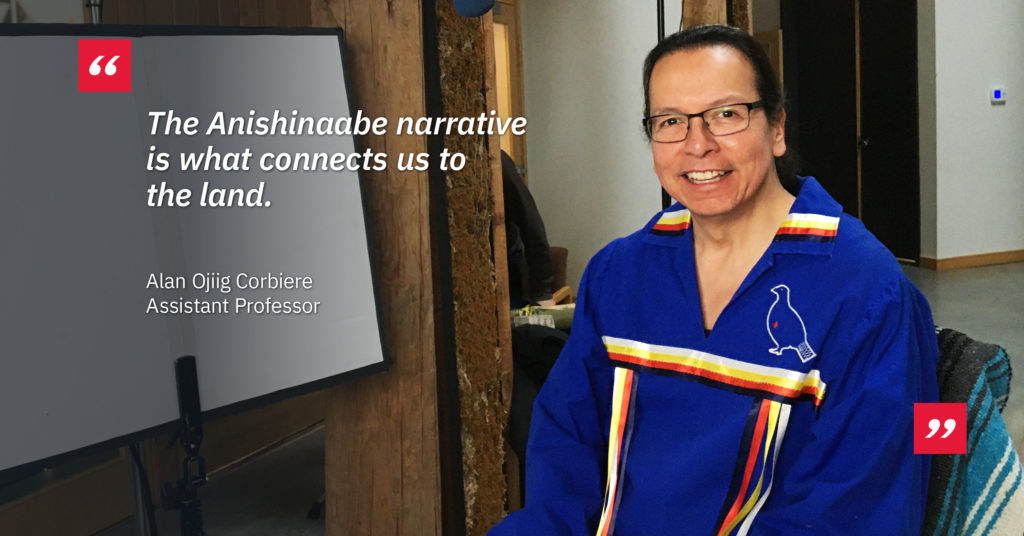
“Growing up my parents spoke Ojibwe to each other every day, I’d hear it sitting at the dinner table, but when they turned to speak to me or my siblings, they spoke in English.
One day when I was 11 or 12 my dad started speaking to me in Ojibwe. I just looked at him blankly and he said, ‘you didn't understand what I said hey?’, I said no to which he responded, ‘I should have taught you our language.’ That stuck with me. I thought to myself, my parents, my grandparents, my great-grandparents all the way back to creation have spoken Ojibwe, it stops at me.
As a kid my father was hit for speaking Ojibwe at school. The dominant message my parents grew up with was that Ojibwe wasn't good for anything. You weren't going to learn anything or get a job speaking Ojibwe, and unfortunately that still seems to be the sentiment today.
I could blame my parents, the government, the church or the school, or I could actually try and learn it. So that's what I’ve been doing ever since.
After finishing my undergrad in Environmental Science at the University of Toronto, I worked with the Assembly of First Nations on an epidemiological study on the contaminant loading in wild game and fish. I started by learning the names of the animals, birds, plants and medicines. Then I took language classes and learned about a thousand words or so, but I couldn’t put them together, our grammar is so different.
That’s when I met Deb McGregor, who is now the Director of York’s Centre for Indigenous Knowledges and Languages. She recommended York’s Masters of Environmental Studies because it's interdisciplinary – you design your own research program, you learn from yourself and you pick the faculty that you want to learn from.
I started my language preservation project, recording elders and transcribing what they said, but as I got to this one elder in my community I was in way over my head. I couldn't transcribe it, it all sounded like one big long word. My dad helped me by repeating the words slowly so I could write them up.
I didn't learn my history in school, and I didn't learn our way of life in school. The Anishinaabe narrative is what connects us to the land. I met someone once who said, ‘our language ties us in sacred ways to our homelands’, I thought that was beautiful and it became my new mantra.
I’m still not fluent in Ojibwe, but I can do quite a bit and I’ve been learning since 1992 when I would read to my unborn child while she was still in my wife's womb, practicing getting my tongue around the stories and the words.
We are starting to lose our elders that are the last generation of truly fluent speakers, who that was their mother tongue, that was their first tongue, that was all they spoke from childbirth to 10 years old. That's the most intimate language that they speak with their siblings, this generation is passing away and they're not being replaced.
My community is known for our Ojibwe language speakers, but we've been taking our language for granted and if we don't do something drastic, we’re letting it slip away. Part of my work was setting up a language revitalization program at my local elementary school in M'Chigeeng First Nation on Manitoulin Island where I live. Through the program I tried to inculcate a greater sense of the value of language being used to teach in different subjects.”
Dr. Alan Ojiig Corbiere is an assistant professor in the History Department within the Faculty of Liberal Arts and Professional Studies. Alan is an Anishinaabe from M’Chigeeng First Nation on Manitoulin Island. His research interests include Indigenous Peoples, History, Anishinaabe Language Revitalization, Treaty Research and Relationships.
